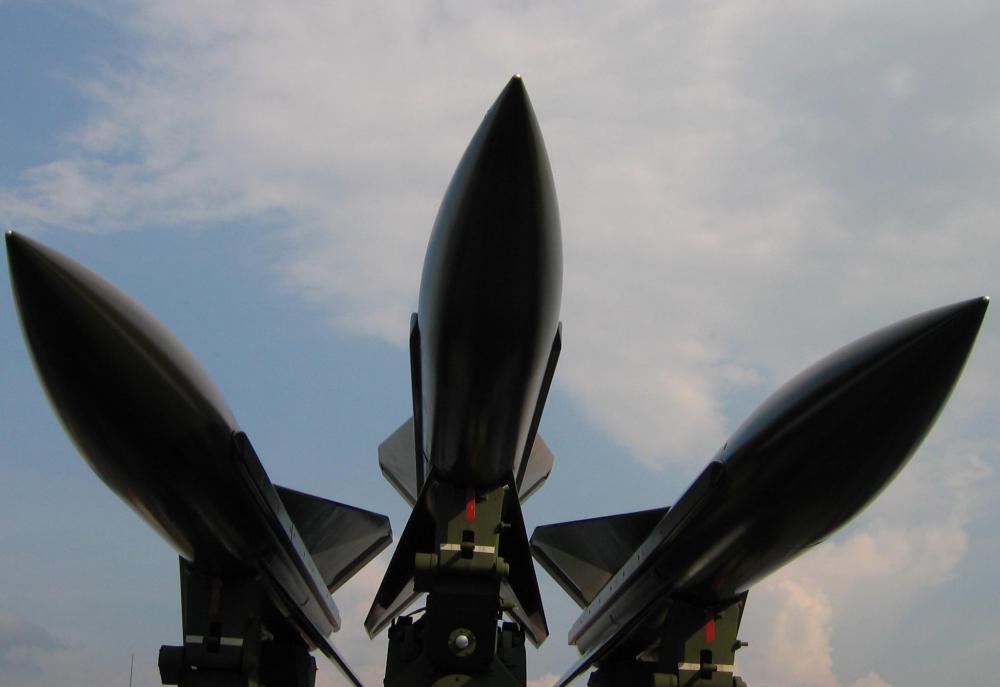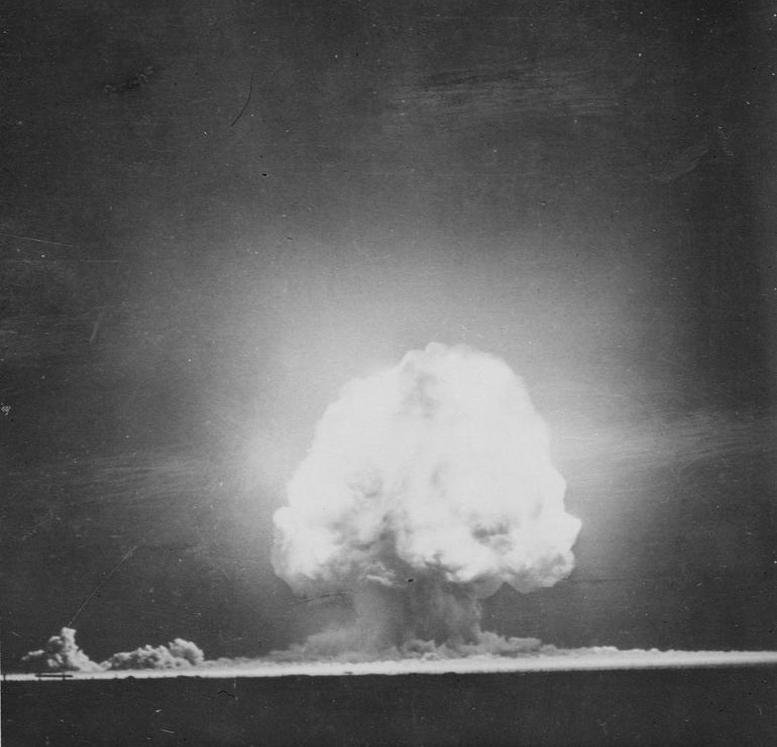At AllThingsNature, we're committed to delivering accurate, trustworthy information. Our expert-authored content is rigorously fact-checked and sourced from credible authorities. Discover how we uphold the highest standards in providing you with reliable knowledge.
What is Nuclear Winter?
Nuclear winter is a theoretical concept which has been put forward by some members of the scientific community. It originated in 1982 with John Birks and Paul Crutzen. Put briefly, the detonation of large numbers of nuclear weapons could trigger a dramatic change in the global climate, causing extreme cold and potentially resulting in serious trouble for the living organisms which call Earth home. Numerous studies on the possibility of nuclear winter have been conducted, and it is difficult to prove that it would happen in the event of a nuclear war, but it is one of the many arguments used against nuclear attacks on other nations.
According to the theories, nuclear winter would be caused by a huge cloud of dust, smoke, and particulate matter resulting from large-scale detonations over cities around the world. As the cities and surrounding areas burned, they could inject huge amounts of material into the atmosphere, slowly blocking sunlight. Because sunlight would not be able to reach Earth, global temperatures would drop dramatically, and our ability to produce food would be greatly reduced.

Scientists have also suggested that a large-scale detonation of nuclear weapons could damage the ozone layer. Because harmful UV radiation can penetrate layers of particulate matter, people would still be at risk of UV exposure despite the fact that it would be dark and cold. People would be at risk from fallout. This could combine with low food production to threaten many organisms on Earth, from humans to birds.

Most of the studies on nuclear winter point out that a massive number of nuclear weapons would need to be detonated to trigger climate change on this scale; something along the lines of half of the known nuclear devices on Earth. It has also been suggested that the detonations would need to be fairly close together, creating a steady stream of material which would work its way up into the atmosphere. Nuclear winter is probably also more likely to impact the Northern Hemisphere, given that this is where the bulk of potential nuclear targets are located.
Critics of the nuclear winter theory have suggested that while we might see some climate change, it wouldn't be as dramatic as the nuclear winter theory proposes. These critics suggest that the particulate matter would be scrubbed from the atmosphere by rain and wind. However, proponents of the theory have pointed out that massive volcanic eruptions have historically caused climate change by shooting streams of smoke and ash into the atmosphere, and the climactic effects of the oil fires in Kuwait during the First Gulf War also lend credence to the theory.
Frequently Asked Questions
What is nuclear winter and how does it occur?
Nuclear winter is a hypothesized climate phenomenon that could result from widespread firestorms following a large-scale nuclear war. According to studies, the soot and smoke from burning cities and forests would rise into the stratosphere, blocking sunlight and dramatically lowering temperatures on Earth, potentially for years, disrupting agriculture and ecosystems worldwide.
How long could a nuclear winter last?
The duration of a nuclear winter is not precisely predictable, but simulations suggest it could last for months to years. Research by scientists like Alan Robock and colleagues indicates that the climatic effects of a nuclear conflict could persist for a decade or more, with the first few years experiencing the most severe cooling.
What would be the environmental impacts of a nuclear winter?
In the event of a nuclear winter, the environment would suffer catastrophic changes. Reduced sunlight would lead to a decline in photosynthesis, crippling the base of the food chain. This would result in widespread famine and habitat loss. Additionally, sudden climate shifts could cause extreme weather events and long-term damage to ecosystems.
Can nuclear winter affect human health directly?
Yes, nuclear winter could have direct adverse effects on human health. Beyond the initial radiation exposure, the prolonged cold and darkness would lead to increased mortality due to cold stress, weakened immune systems, and potential vitamin deficiencies. Moreover, food shortages and contaminated water supplies would exacerbate health crises and diseases.
Is nuclear winter a universally accepted theory?
While the concept of nuclear winter is widely recognized in the scientific community, it is a subject of ongoing research and debate. Some scientists argue about the extent and duration of the cooling effects, but the consensus is that a nuclear war would have severe and long-lasting impacts on the Earth's climate and life.
What can be done to prevent nuclear winter?
The most effective way to prevent nuclear winter is through global nuclear disarmament and the prevention of nuclear war. International treaties like the Treaty on the Non-Proliferation of Nuclear Weapons aim to limit the spread of nuclear weapons. Diplomacy, peacekeeping efforts, and maintaining geopolitical stability are crucial in averting the catastrophic scenario of a nuclear winter.
AS FEATURED ON:
AS FEATURED ON:












Discussion Comments
Russia still has a significant amount of nuclear weapons to launch against the US. In a nuclear ear they would not hold back even today. The rogue nation that launches the few missiles will be the opening salvo in the bigger match between the US/Russia/China/others. Believe me there will be a nuclear winter if such a war occurred and do not be fooled with the end of the Cold War. Tensions are high ernow then at times during the Cold War.
This theory was considerably more relevant during the Cold War era than it is today. Back when the United States and Soviet Union were two somewhat equally matched nuclear powers, the notion that a nuclear war would result in the release of most of the nuclear weapons on the planet was quite credible.
With the collapse of the Soviet Union, the threat of enough nukes being tossed around to set off a nuclear winter has diminished. The main nuclear threat comes not from super powers with silos full of enough missiles to wipe out the planet, but from a rogue nation or two with a couple of missiles to launch. The damage done by just a few nukes would be substantial, but arguably not enough to set off a nuclear winter.
Post your comments